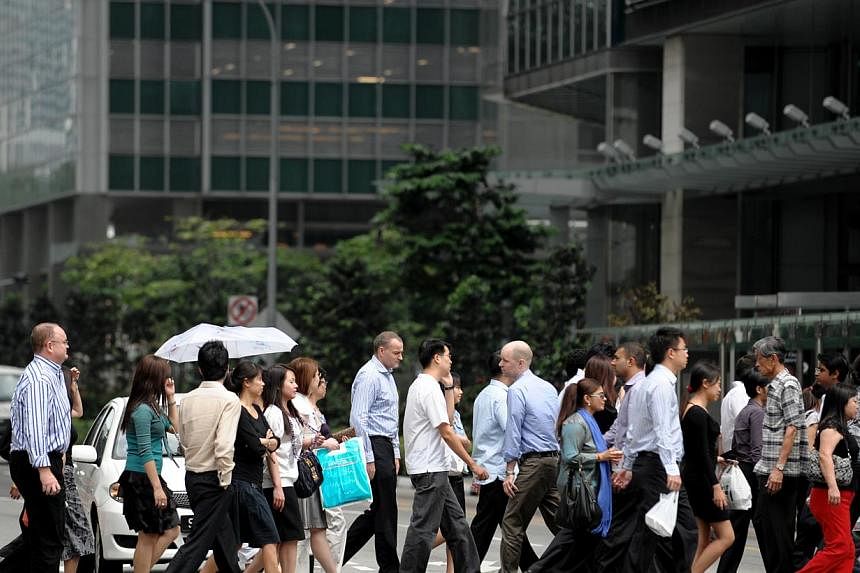SINGAPORE - Singapore remains the place to be for the highest base salaries at senior and top management level in the region, with pay levels around 10 per cent higher than the next highest, Hong Kong, according to new research by global professional services company Towers Watson.
Executives right at the top of the hierarchy in Singapore have an average base pay of around US$586,000 (S$813,000) a year, compared to around US$445,000 a year in Hong Kong - a differential that narrowed fractionally from last year.
The findings in the Asia Pacific section of Towers Watson's 2014/2015 Global 50 Remuneration Planning Report sheds light on the relative competitiveness of base salaries across the region and the impact of currency movements on base salaries in US dollar terms.

In Singapore and Hong Kong, base salaries overall edged 3 to 4 per cent higher, except at top management level where base salaries grew around 6 to 8 per cent.
"Base salaries are, on the face of it, considerably higher in Singapore than Hong Kong, especially at a top management level, but the tax rates at those levels vary considerably and that has a bearing on take-home pay," said Sambhav Rakyan, Data Services practice leader, Asia Pacific at Towers Watson.
"That said, we do see signs of regional HQs moving from Singapore to other lower cost locations, such as Malaysia and Indonesia, to reduce staffing costs, subject to availability of talent."
Hong Kong, though, may overtake Singapore in the near future for highest executive pay
"Hong Kong will very likely top the region for executive pay in the next few years if its currency continues to strengthen against the Singapore dollar," said Mr. Rakyan. "With the U.S. dollar rising and the Fed expected to raise interest rates this year, the dollar peg will see the Hong Kong dollar rise in tandem."
While base salaries in Singapore remain top of the table, those in Hong Kong stayed comfortably higher across the board than in Greater China. For production and manual work, base salaries in Hong Kong are around three times those of China, a gap that narrows to around twice entering the junior management and professional grades. Thereafter, the salaries are 20 to 40 per cent higher.
The pay differentials between China and Hong Kong narrowed, particularly for manual and production work, where base salaries in China rose 9 to15 per cent while in Hong Kong they were up 2 to 3 per cent on average.
Senior management pay in Shanghai is only 10 per cent below their peers in Hong Kong, reflecting in part the intensifying competition for talent along with the underlying shortage of talent in Shanghai.
"It's worth noting that the income tax environment in Hong Kong is more favorable than that of China, adding to take-home pay and therefore making Hong Kong more attractive in that sense. To an extent, however, we're seeing some local Chinese companies responding by introducing a higher percentage of variable pay and equity incentives that are creating challenges for MNCs looking to hire and retain talent in China."
Overall, salary increases in Greater China and in many parts of the region, were very modest, little changed from last year, largely a reflection on the low levels of inflation in the region.
For multinational corporations converting their staff costs back into U.S. dollars for reporting purposes, the rise in the value of the US dollar, particularly against the yen, Australian dollar, Singapore dollar and renminbi, is significant.
Conversely, however, those MNCs with staff on US dollar-based expat packages within these locations are set to see a greater imbalance in their pay structure, accentuating the benefit of converting expats to local pay packages, said Towers Watson.
"While there are other factors at play, such as benefits and the local market situations which may limit the impact, for companies that report in US dollars, the weaker local currencies will clearly help," said Mr. Rakyan. "It's also worth noting that some of the currency movement occurred after decisions were made and budgets set for salary reviews."


